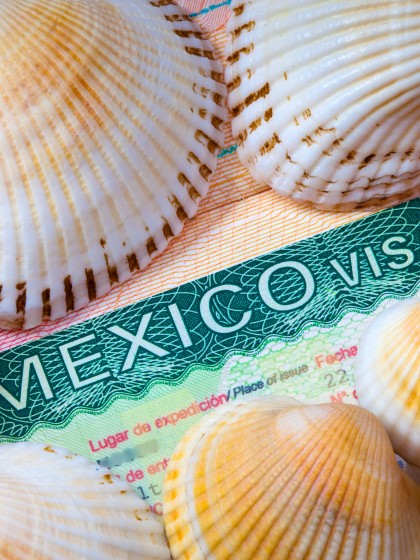This article contains a list of the most frequently asked questions and answers regarding matters related to Mexico’s RFC (and the related but distinct, CURP).
What is a RFC in Mexico?
The RFC stands for Registro Federal de Contibuyentes. It’s a unique registration number issued by Mexico’s tax collection agency, SAT.
What is the ‘SAT’ in Mexico?
SAT stands for Servicio de Administracion Tributaria. This is Mexico’s tax collection agency, akin to the IRS in the United States. Like the IRS, SAT has offices in every state around the country.
What types of RFC are there?
There are two main categories of RFC:
- one for physical persons (Persona Física) that is akin to a US Social Security number; and
- one for registered companies (Persona Moral) that is akin to a company tax registration number.
Who can apply for a RFC?
A RFC can be issued to Mexican nationals and legal foreign residents who have residency cards. Visitors and tourists cannot apply for a RFC.
Is the CURP a form of RFC?
No. The CURP stands for Clave Única de Registro de Población and is different to the RFC. When you are granted legal residency in Mexico you are automatically assigned a CURP, but you are not automatically assigned a RFC—you have to apply for the RFC separately. Your CURP is usually printed on your residency card, but not always. You can find your CURP using this website.
What is the RFC used for?
The RFC is used to track business and commercial transactions, payments, and expenses for taxation reporting purposes.
For example, employers use it to report income tax deducted from employees’ paychecks, and businesses and self-employed individuals trading in Mexico use it to report their income and tax-deductible expenses. Individuals can also use their RFC to claim certain tax rebates that their employers do not handle, for example, certain medical expenses.
Most businesses and self-employed individuals hire a local accountant to manage the reporting through their RFC; individuals claiming a tax rebate might also hire an accountant to assist them through the procedures. You can also find tax and business advisors on our Professional Assistance Services section.
What is a Factura, and how does it relate to the RFC
A Factura is an official tax invoice that is associated with the seller’s and buyer’s RFC. If you want to claim an expense for income tax deduction purposes, you must ask for an official Factura when you buy — a simple receipt will not suffice. When you ask for a Factura the seller will ask you for your RFC (or the business RFC). Facturas are requested and issued electronically through the SAT’s online system. Expenses incurred without a Factura cannot be used to claim any tax credits.
How do I apply for a RFC in Mexico?
You need to attend your local SAT office in person to apply. SAT only receives applications by prior appointment. You need to request your appointment online. If appointments are not currently available in your state/area, you can opt to join a waiting list and the SAT system will send you an email when appointments become available in your area.
When you attend the SAT office to register , you will need to take a printed copy of your CURP (you can get this online), your residency card (temporary or permanent), and some official ID—your passport is best.
You might consider hiring a local accountant to help you with this—see the heading below about dealing with tax matters in Mexico. You can also find tax and business and business advisors on our Professional Assistance Services section.
What happens if I don’t have a RFC?
If you don’t have a RFC, you cannot claim capital gains tax exemptions on any property you own when you sell it (see next question); banks now ask for a RFC when you open a bank account in Mexico; car dealers ask for a RFC when you purchase a car in Mexico.
What purpose does the RFC have if I own a home in Mexico?
If you own a home in Mexico, you will need a RFC to claim capital gains tax deductions when you sell it. Learn more about the costs and taxes of selling your Mexican home. The electricity company may ask for it if you apply to have an electric circuit installed at your home in Mexico.
Dealing with tax and business matters in Mexico
Tax law and its rules are complex, and we recommend you contact and hire a local accountant to assist you with matters related to your tax in Mexico. You don’t have to use an accountant, but if you don’t, you’ll need a good grasp of Spanish, and patience, to deal with the bureaucracy. Two key advantages of using an accountant are that the good ones will be up-to-speed with the current rules and may be able to advise you about ways to organize your income and expenses here, and they will ease the burden of all the reporting forms and requirements.
You can also find tax and business advisors on our Professional Assistance Services section.
Further information
Here are some additional resources related to RFCs, etc.










